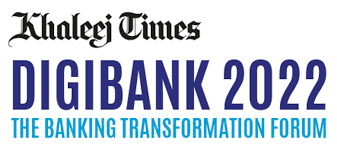Digital banking apps are shaking things up and introducing a seamless, cost-effective, and flexible way of accessing financial services to customers in the UAE.
Although some of the worst pandemic forecasts have not yet materialised, banks continue to face long-term revenue pressure and tighter competition. The opportunity to fast-track banking transformation has never been more significant.
However, it is collaboration and not competition that would create wins for neobanks in the country, said CEOs of leading financial institutions.
Top leaders in the banking sector were speaking at the third edition of Khaleej Times DigiBank 2022 – the Banking Transformation Forum.
While providing the keynote address, Jamal Saleh, the director-general of UAE Banks Federation, said: “Post-pandemic, every person is now digitally connected to a bank. The UAE has always wanted to be a pioneer in this field. However, the targets and objectives are much beyond that; the strategy now is to enhance the efficiency of the digital banking sector.”
According to recent surveys, the UAE has gone up from 63 per cent trust in the banking system to 87 per cent in two years. A big part of it was the digital transformation in the UAE over the last two years since the pandemic.
Saleh also stressed the need to ensure the security and resilience of the digital banking system. While the roles of the UAE Police, the Ministry of Interior, and other government security departments are paramount in ensuring customer safety within the banking sector, Saleh said banks also play a critical role in ensuring safe transactions for all customers.
Olivier Crespin, Chief Executive Officer, ZAND, said: “70 per cent of any human activity starts with financial representation. If you look at the UAE digitalisation agenda, there is a strong push to make banking seamless.” Licensed by the Central Bank of the UAE, Zand is the first digital bank to provide retail and corporate banking.
Meanwhile, Jayesh Patel, CEO of the recently launched WIO Bank, said, “At least 65 per cent of customers in UAE want to try a new digital service, according to a VISA survey. At WIO, we ensure customers have it easy as they are willing to try out more and more new solutions.
We are democratising banking where FinTechs and start-ups can come and work with us.” 65 per cent of Wio is owned by Abu Dhabi sovereign wealth fund ADQ and Alpha Dhabi, while 25 per cent is owned by Etisalat and ten per cent by First Abu Dhabi Bank.
“Consumers expect the same experience from a physical store as a web store or online service,” noted Vibhor Mundhanda, CEO of NEOPAY. He added that an omnichannel presence is the key to success in the banking realm.
Masood Khan, CEO of YAP – an innovative digital banking app that provides tools for total control of their finances – said YAP has acquired 150,000 customers in 11 months purely through social media marketing. “Approximately 85 per cent of the customers were acquired through social media, and 15 per cent through references,” Khan explained.
YAP has a growing presence on TikTok, META products, and Microsoft-backed LinkedIn. The CEOs also said looking at the neobanks space as competitive is a little aggressive; instead, they are building a new ecosystem which challenges regulators and authorities.
“We all have clear focus areas. If you are competing, you are competing for the customer’s good, and we are driving UAE national agendas together. It is about how we complement and grow the ecosystem; everyone is set to benefit from them,” said Khan.
Patel explained: “To be customer-centric, we must work with our clients. Using technology, we have to build for the customer.
If you look at the solutions SMEs get, many of them are broken; they start at a bank for funding and then end up looking elsewhere. At WIO, we are trying to streamline the process allowing customers to stop doing admin and focus on their businesses instead.”
Khan added, “We launched services for SMEs last year, and all of us know that SMEs need faster solutions. Data doesn’t need to create new problems to solve: instead, use data to resolve existing problems.”
Meanwhile, DJ Choi, Chief Customer Officer at RAKBank, said: “Personalisation in banking is more relevant than ever as we are inundated with brand messages. Even the little shop below your building targets you with its branding messages. How do you make it stop, or how do you make it work to your benefit? That’s where personalisation becomes very relevant.”
Choi said to the heads of various banks: “While the customer chooses you, you must also be choosing the customer. A clear strategy, risk and contact policy, and rules must be applied when communicating with the customer.”
Khaleej Times



